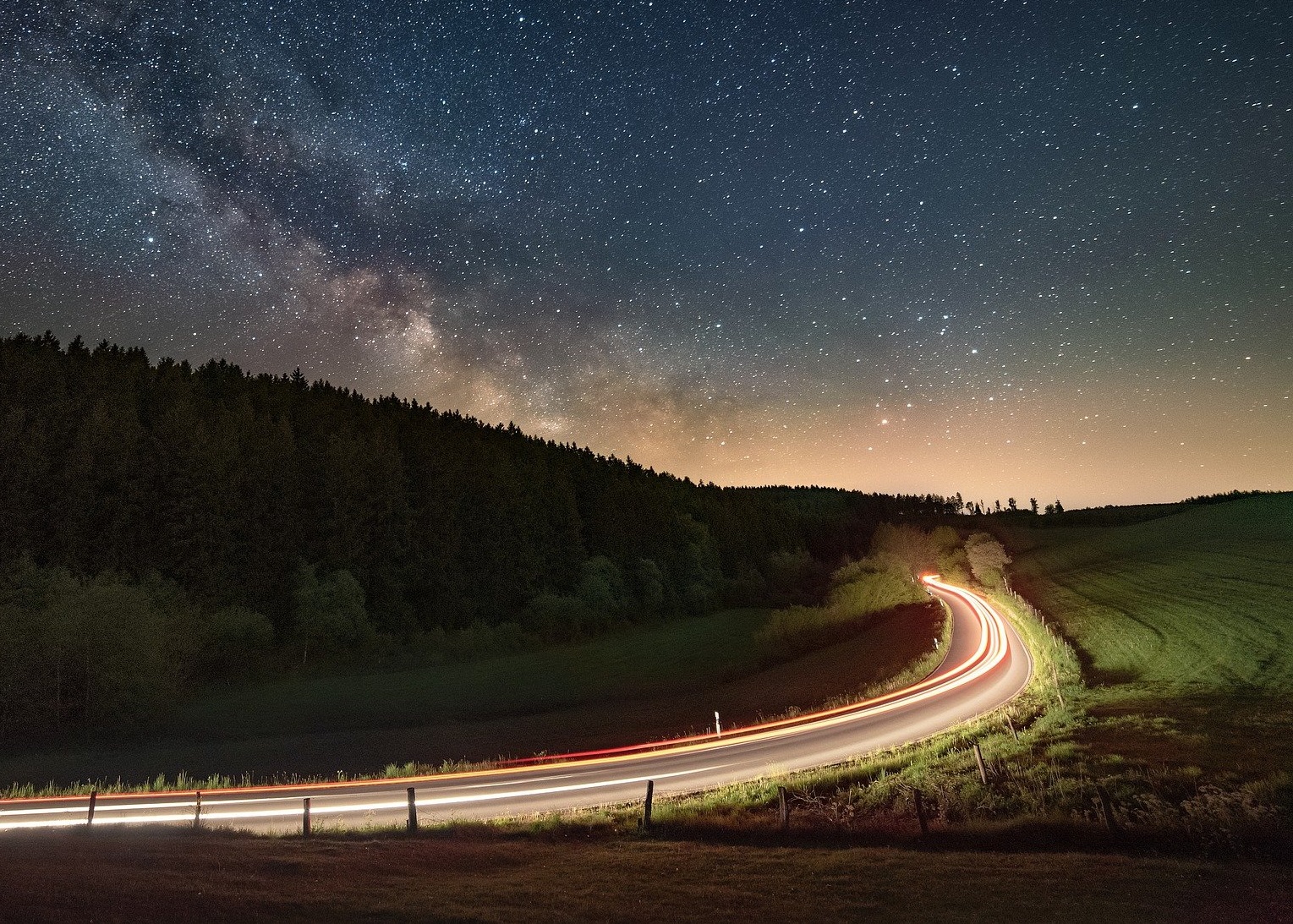The winter season brings more than just temperature changes and the possibility of wet and icy conditions. It also ushers in ever-shortening daylight hours, which in turn exposes us to more RV nighttime driving. For the average automobile driver, this issue is of little consequence, but it is a different story for many recreational vehicle owners.
Most RV folks rarely drive in the dark of night, as the majority travel in the summer when the days are long. Additionally, many prefer operating their rigs in the daytime. Often owners will speak of their class A headlights seemingly not being as efficient as they are accustomed to on their family auto or SUV. This, however, could be a misconception. There may be other culprits to blame here.
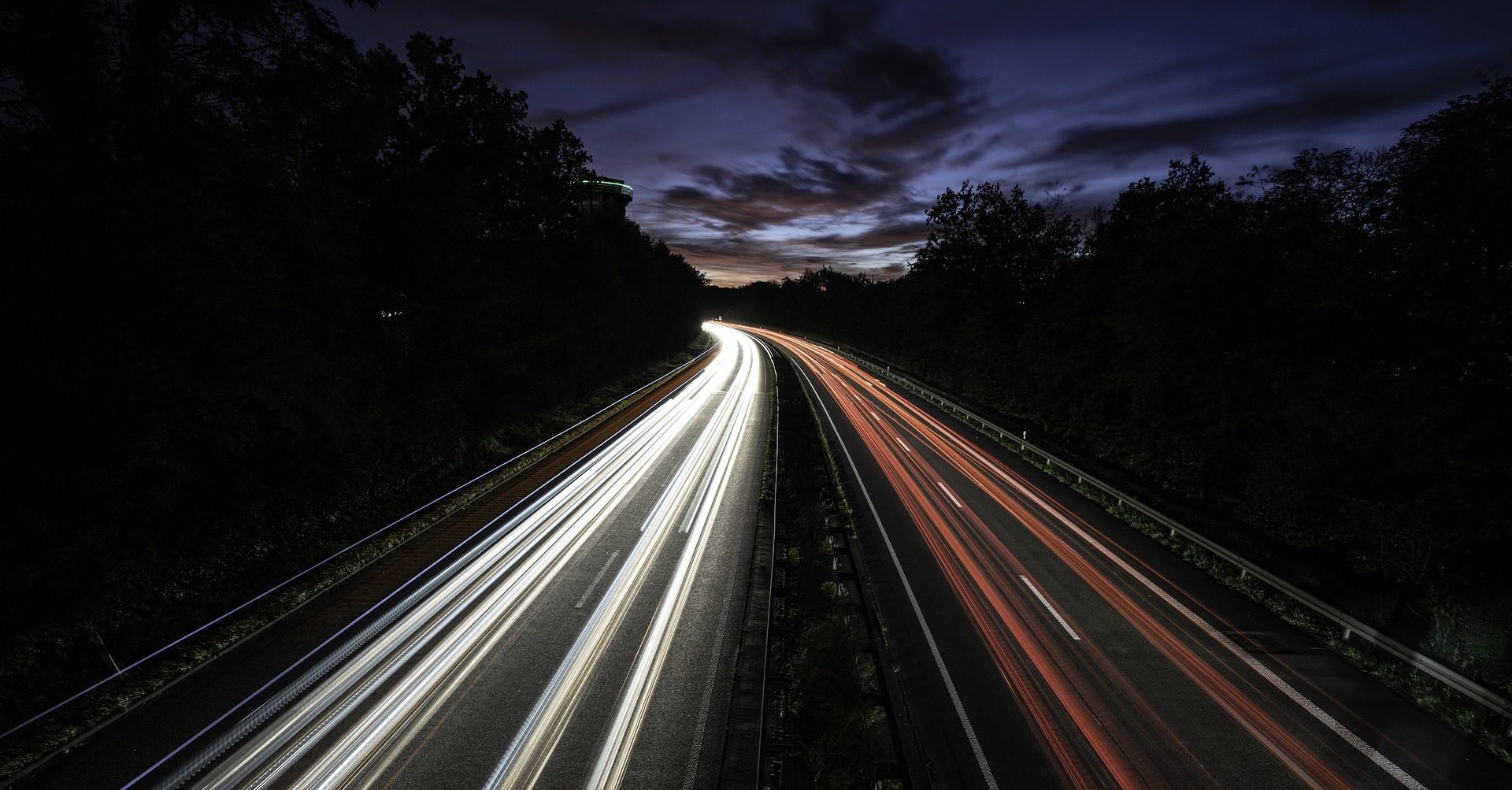
Photo: OrcaTec/Pixabay.
So, let’s look at some tips that may help RV owners during their night passages:
Shine Your Light
If you are embarking on a road trip that will require a fair amount of night driving, you should first visually check that all your unit’s running lights are fully operational, including the brake and directional signals.
Be sure the windshield is clean inside and out. Water stains and film-like coatings on the windscreen can make vision extremely poor in the face of oncoming headlights. Also, be sure the headlamp lenses are clean so they can illuminate your path to the best of their ability. You’ll find several headlight cleaners available from retailers.
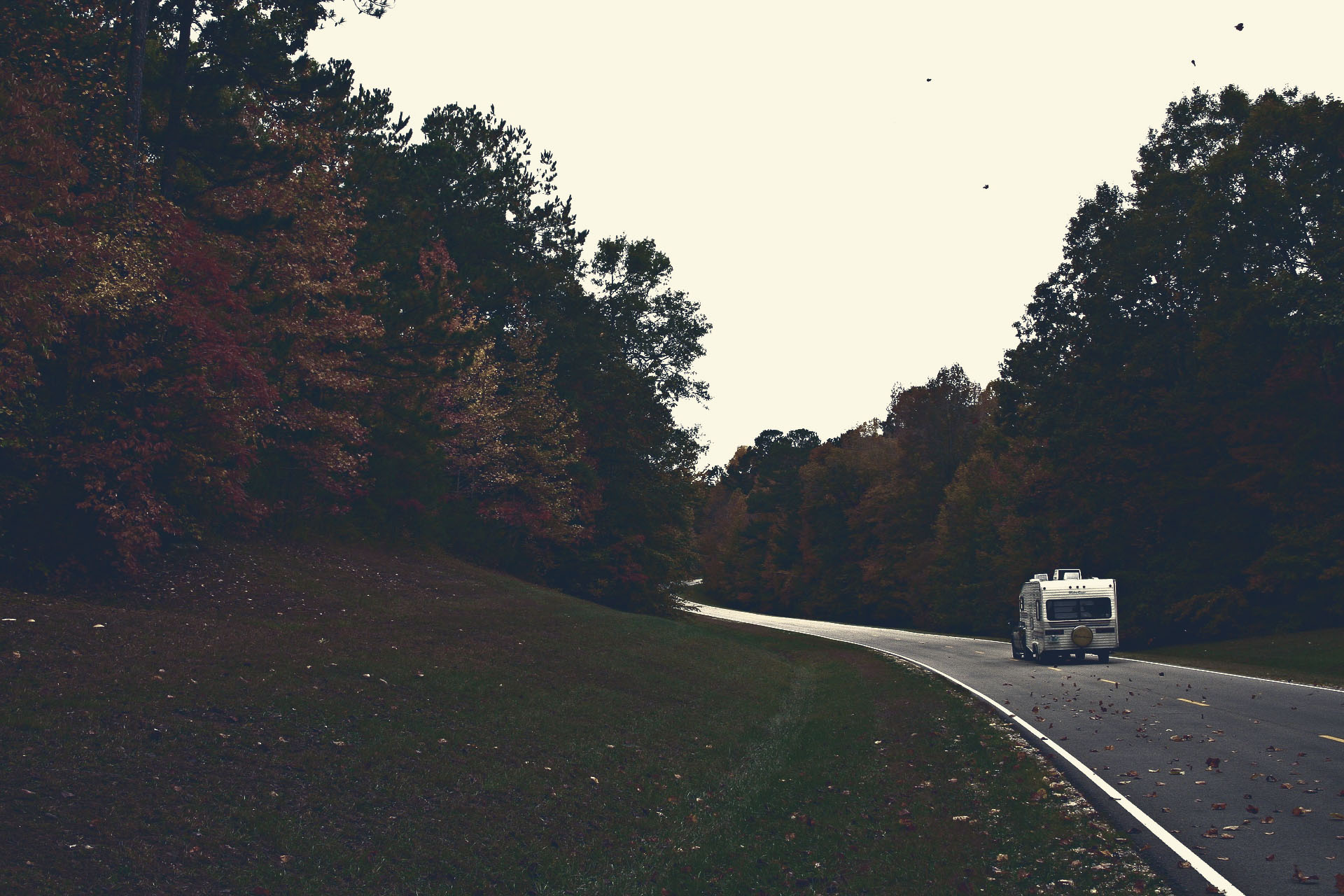
Photo: PIxabay
Adjusting Your Eyes
The wearing of sunglasses through the day before the night’s journey can help improve night vision. Getting your eyes accustomed to dimmer lighting prepares them for after-dark conditions. This practice has been commonly used by many aircraft pilots over the years.
We often see many RV tow vehicles and motorhomes running their fog lights. Some believe it enhances the look of their rig, while others just want to increase the forward light for perceived better forward roadway viewing. Both motivations are incorrect. Fog lights focus most of their illumination for a very short distance directly in front of the vehicle. This bright forefront can cause the operator’s eye iris to reduce its size, restricting some of the excess light. This, in turn, reduces the vision ahead where the headlights are shining.
Another light source that tends to rob the eyes of their best night vision is brighter-than-needed instrument lighting. Although generally not adjusted to a lower brightness in your daily driver, class A motor homes usually have an abundance of operational related dials and light controls that may need reducing. Turning the controlling rheostat to the lowest level, while still having the ability to read and operate the switches, can produce a satisfying effect.
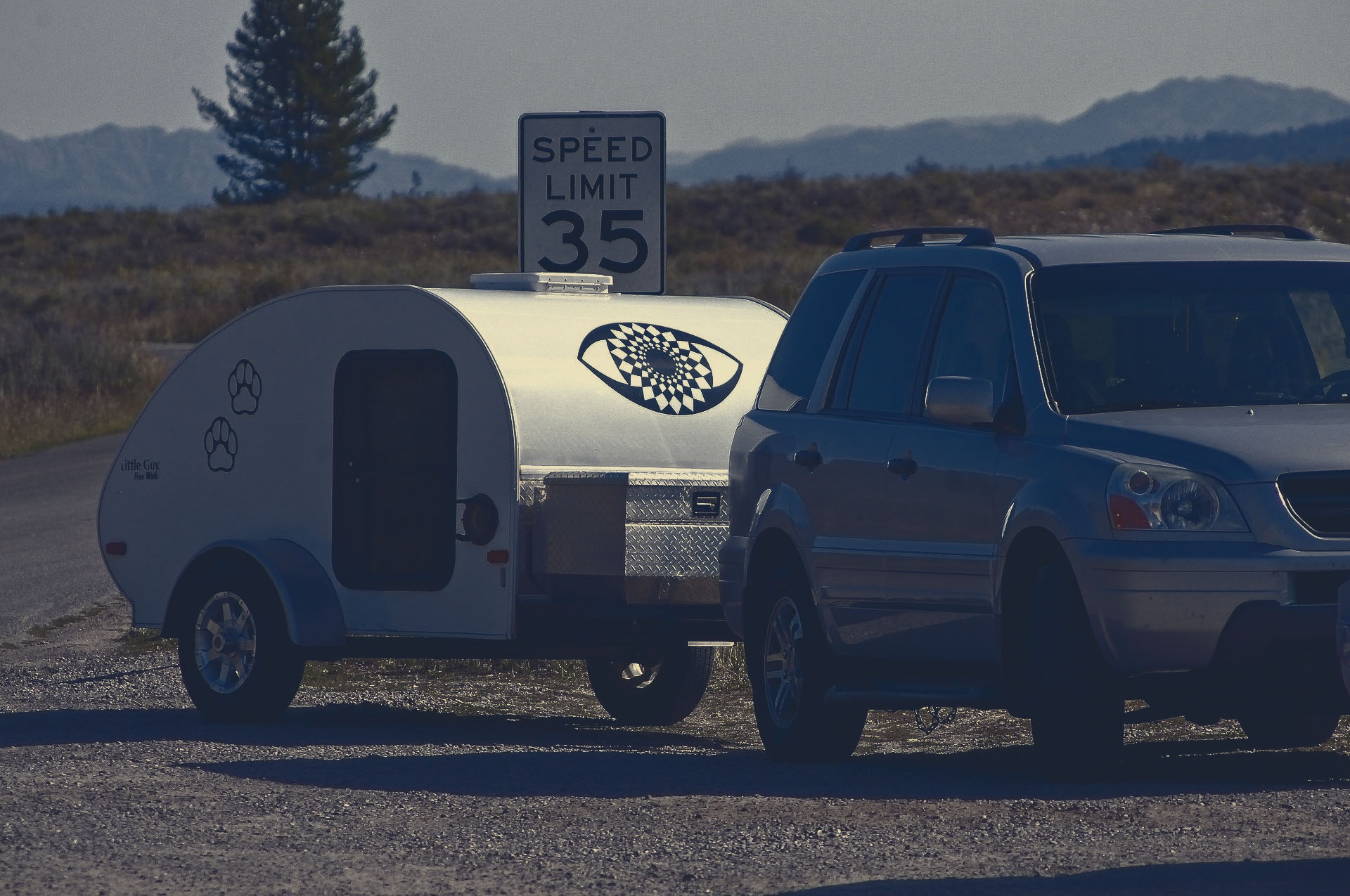
Photo: Mike Goad/Pixabay
GPS screens and similar information center displays radiate substantial light across the dash, leaching more of one’s night vision ability. Turning this feature off, or certainly reducing the brightness, can make a great difference in your distance night viewing what lies ahead.
The outside mirrors reflect the following traffic’s headlights and even with an auto-dimming feature can be quite dominant. Aiming these slightly outboard so that you must lean over to view can remove this direct light force. Being dark, you will still be aware of approaching vehicles. Don’t forget to realign the mirrors for daytime use.
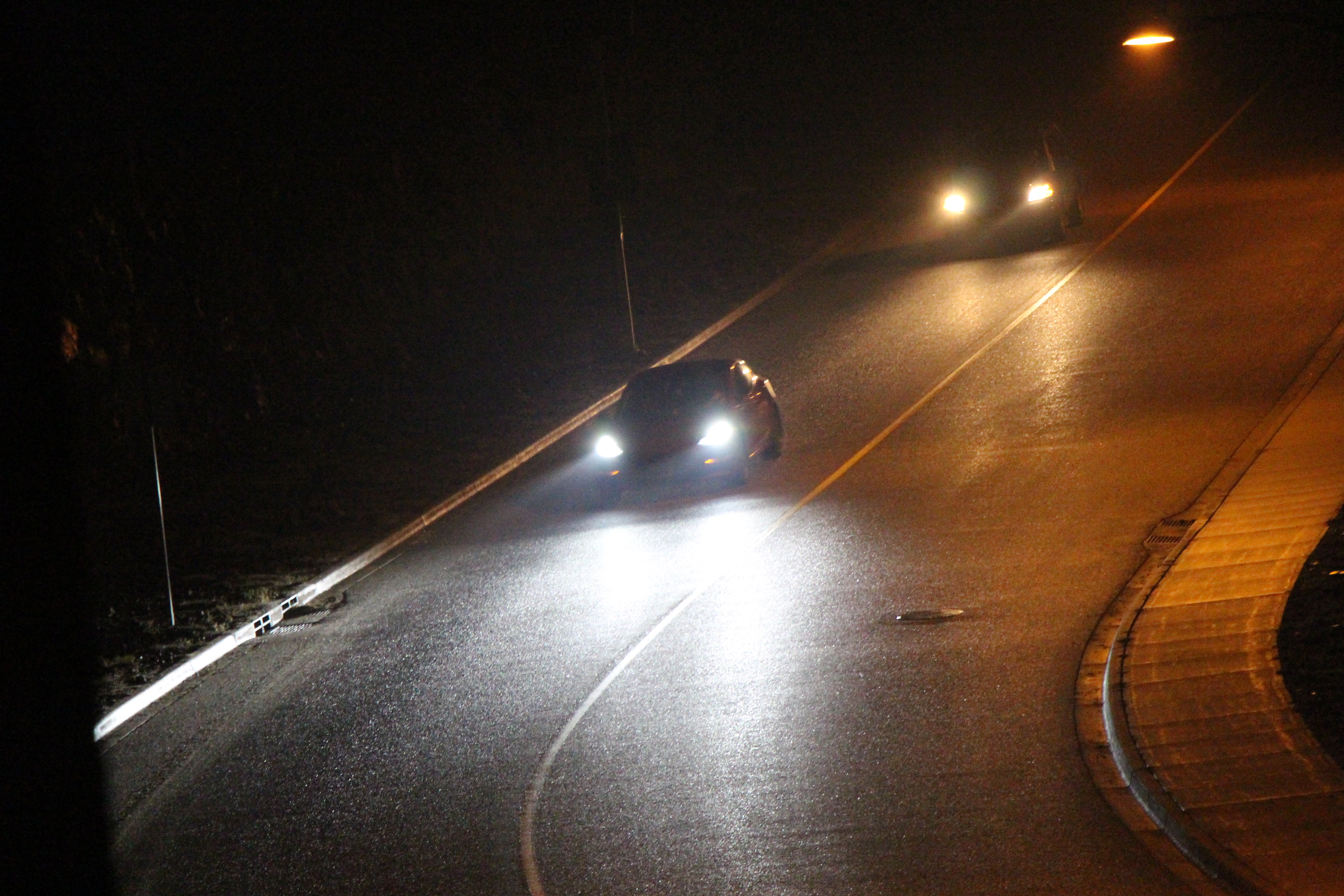
Photo: Peter Mercer
Ease Off the Gas
Reduce your speed for nighttime driving. This can not be overemphasized. Many drivers overdrive their headlights. They are traveling at a speed at which they can not see within their stopping distance. For example, at 60 miles per hour you are moving at 88 feet per second. The average headlight illumination range is around 350 feet. If a danger lies in your path, you will only have 4 seconds to take suitable action before you are on top of it. Of course, a portion of that time would be lost in reaction delay and correction application. Obviously, a speed reduction is the only prudent thing to do, particularly with a larger-than-average vehicle or combination RV rig.
Well, that sums up some of the items that can affect your night driving skills. As we age, our sight degrades. This can be most evident in poor light conditions. If you ever start to feel uncomfortable driving at night, stop doing so and plan your trip time in the daylight hours. After all, cruising in your RV should be ultimately relaxing and enjoyable, not uptight and stressful. Getting there is half the fun.
Peter Mercer – Keeping an Eye on Your Night RV Driving

